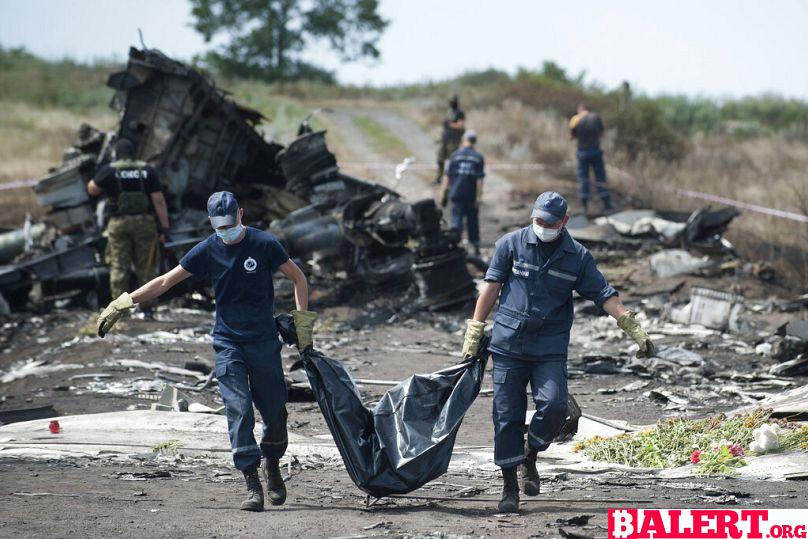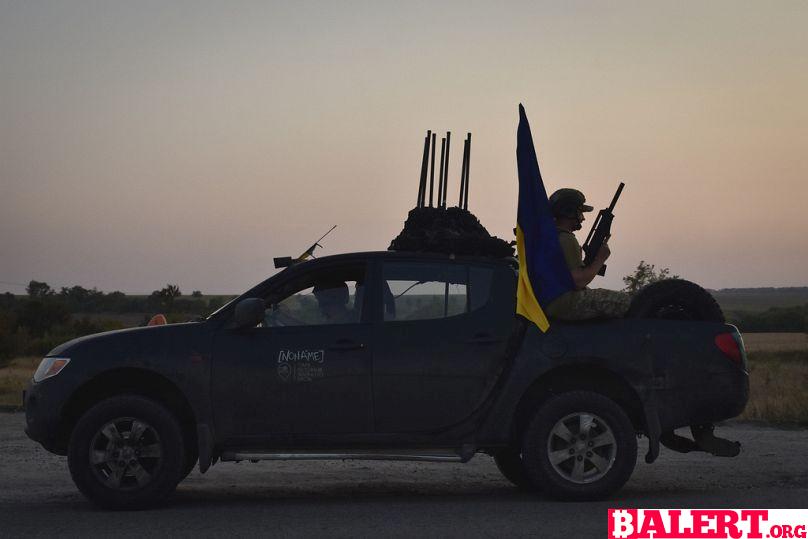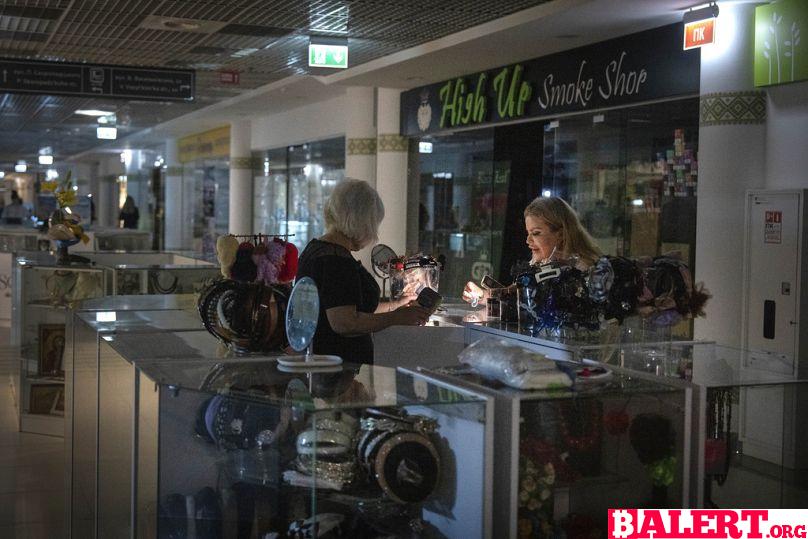World
Russia’s Hybrid Warfare: The Silent Threat to Western Democracies
Explore the complexities of Russia’s hybrid warfare strategies and their impact on Western democracies. Understand the silent threats posed by disinformation, cyber attacks, and political manipulation in this insightful analysis.

Russia’s Hybrid Warfare: A Silent Threat to the West

Since the onset of the full-scale Russian invasion of Ukraine in 2022, global attention has been riveted on the battlefield. However, Russia is simultaneously engaged in a second, less publicized conflict: a hybrid war targeting Western democracies. According to Eastern Europe expert Franziska Davies, this conflict is characterized by its elusive nature and encompasses various tactics that do not involve direct military engagements. The overarching aim of these operations is to undermine and destabilize Western societies.
One striking instance of Russia’s hybrid warfare was recently revealed: a conspiracy to assassinate the CEO of Rheinmetall, a prominent German automotive and arms manufacturer headquartered in Düsseldorf. This plot, reported by US broadcaster CNN, is part of a broader scheme aimed at attacking executives from European defense firms involved in supplying weapons to Ukraine.
Davies elaborates on Russia’s ambitions, stating, “What Russia ultimately strives for is a Europe where it can impose its will without regard for international laws and norms—where power is exercised through force.”
The Pervasiveness of Disinformation
Experts categorize Russia’s hybrid warfare strategies into several components, including cyberattacks, targeted harassment of individuals, and widespread disinformation campaigns. Tapio Pyysalo, Head of International Relations at the European Centre for Countering Hybrid Threats, emphasizes that “we are all targets of these influence operations.”
As Europe approaches its elections in June, a coordinated effort has emerged to disseminate pro-Russian, anti-vaccine, and anti-LGBTQ narratives across social media platforms. Research conducted by the Dutch institute Trollrensics has uncovered a significant disinformation campaign in Germany that promotes content favorable to the far-right political party Alternative for Germany (AfD). The patterns suggest that the bots responsible for this content may originate from Russian or pro-Russian groups.
Although many European nations have enhanced their defenses against hybrid threats since Russia’s annexation of Crimea in 2014, Pyysalo warns that effective data sharing among countries is essential for better preparedness. However, such collaboration often intersects with national security laws, complicating the process. “Democratic states must strengthen their legislation to close the loopholes exploited by hybrid actors,” he asserts.
Identifying and Combatting Disinformation
One crucial response to disinformation is to actively recognize and refrain from sharing false narratives, according to Pyysalo. “Everyone has a role to play in verifying information and ensuring that what they disseminate is grounded in facts rather than misleading narratives.”
Dr. Frank Sauer, a security policy expert at the Bundeswehr University in Munich, notes that Russian disinformation campaigns often follow recognizable patterns. “Whether discussing the downing of MH17 or the bombing of a children’s hospital in Kyiv, the sequence is consistent: initial denial, blame-shifting, and eventual admission paired with justification,” he explains.
To counter these disinformation efforts, it is essential to check whether other reputable media outlets have independently verified the information. Additionally, examining the source of the news—such as the credibility of the social media profiles involved—can be revealing. A Ukrainian Ministry of Defence manual on debunking fake news highlights that suspicious profiles often feature random combinations of numbers and utilize outdated or generic images sourced from Google.
Sauer contends that the ultimate goal of Russia’s disinformation tactics is to instill a sense of helplessness, convincing individuals that they can never ascertain the truth. “In Ukraine, many businesses rely on emergency generators, a capability that other European nations may lack,” he cautions. “Hybrid attacks can extend beyond the virtual realm, targeting critical infrastructure.” He adds that similar assaults on energy systems in Ukraine could occur elsewhere in Europe, urging preparedness for potential disruptions in essential services and food supplies. “Be prepared for the worst, but of course, hope for the best,” he summarizes.
Germany’s Vulnerability and the Need for Preparedness

Germany, as Europe’s largest economy, finds itself particularly vulnerable to a range of suspected Russian attacks. According to Sauer, the most alarming scenario would be a total power blackout. “The general populace is ill-prepared for such events. We tend to assume that services will function seamlessly—food will always be available, water will flow from taps, and the weather will remain favorable,” he remarks.
The German Federal Office of Civil Protection and Disaster Assistance has initiated steps to compile supply lists, recommending that individuals stockpile enough food for ten days, along with two liters of liquid per person per day. Additionally, citizens are advised to maintain emergency first-aid kits and keep important documents organized for quick access during a crisis.
Building Civil Resilience

Sauer argues that in the face of potential crises, fostering civil resilience should take precedence over military enhancements. “We need to cultivate a reserve of citizens capable of responding effectively in emergencies. We require individuals adept at practical tasks, such as filling sandbags or operating emergency generators,” he explains.
In Germany, the focus should be on ensuring that during emergencies, communities can organize support so that everyone has access to warmth, children have safe spaces to play, and essential services like mobile phone charging and food preparation can be maintained. Importantly, Sauer emphasizes that these preparations are vital not only in the event of external attacks but also in response to challenges posed by the climate crisis.
His hope is for a widespread societal consensus on the importance of investing both financial resources and time into community resilience. This could involve citizens engaging with organizations such as the Federal Agency for Technical Relief, local fire brigades, the Red Cross, or even the German Armed Forces. “We must equip ourselves with the knowledge and skills to tackle disruptions within our communities,” he concludes.
World
Dominique Pelicot Testifies in Harrowing Rape Trial
Join us as Dominique Pelicot courageously testifies in a harrowing rape trial, shedding light on the complexities of trauma and justice. Her powerful story raises crucial questions about the legal system and the importance of support for survivors.

Dominique Pelicot Takes the Stand in Shocking Rape Trial
In a courtroom drama that has captivated France and garnered international attention, Dominique Pelicot, the man at the center of a harrowing rape trial, finally addressed the court. With tears streaming down his face, he recounted how his wife had been instrumental in helping him cope with a tumultuous past marked by trauma. He revealed that he had endured a sexual assault at the tender age of nine while hospitalized, and he also witnessed a gang rape during his teenage years while working as an apprentice electrician on a construction site.
“She didn’t deserve this, I acknowledge that,” Mr. Pelicot stated, his voice barely audible as he struggled to convey his emotions. The gravity of the situation weighed heavily on him, and the courtroom fell silent, straining to catch his every word.
Now 71 years old, Mr. Pelicot faces serious allegations of drugging his wife, Gisèle Pelicot, whom he has been married to for half a century, over a span of nearly ten years. Prosecutors contend that he used drugs to render her comatose, allowing him to rape her repeatedly. Furthermore, authorities allege that he went so far as to invite numerous men into their home, facilitating a nightmarish scenario where they, too, engaged in the assault of his wife.
Overall, 51 men, including Mr. Pelicot, are on trial concurrently, primarily facing charges related to the aggravated rape of Ms. Pelicot. Among them, one individual has already pleaded guilty to similar crimes, admitting to drugging his own wife to assault her and inviting Mr. Pelicot to partake in the horrific act while she was incapacitated.
Mr. Pelicot’s unexpected testimony came after a tumultuous start to the trial. Just a week in, he was stricken with severe health issues that forced him to miss four consecutive days in court. The head judge ultimately decided to postpone proceedings, as Mr. Pelicot was diagnosed with kidney stones, a kidney infection, and prostate complications, adding yet another layer of complexity to this already harrowing case.
World
Meta Bans Russian State Media Outlets from Social Media Platforms
Explore the implications of Meta’s decision to ban Russian state media outlets from its social media platforms. Understand the impact on information dissemination and the ongoing battle against misinformation in the digital landscape.

Meta Imposes Global Ban on Russian State Media Outlets
In a significant move, Meta Platforms, Inc., the parent company of Facebook, has announced the prohibition of Russian state media outlets, including RT (Russia Today) and Rossiya Segodnya, from all its social media platforms. The decision stems from the company’s concerns regarding the deceptive strategies employed by these media organizations to execute covert influence operations across the internet.
Meta made this announcement on Monday, emphasizing that the ban will be enforced worldwide across its various platforms, such as Instagram, WhatsApp, and Threads. The rollout of this ban is expected to take place over the coming days.
Statement from Meta
A spokesperson for Meta elaborated on the decision, stating, “After careful consideration, we have expanded our ongoing enforcement actions against Russian state media outlets. As a result, Rossiya Segodnya, RT, and other affiliated entities are now banned from our applications globally due to their involvement in foreign interference activities.”
For further insights into this development, watch the video in the player above.
World
Trump Recalls Alleged Assassination Attempt While Golfing
Explore Donald Trump’s chilling recollection of an alleged assassination attempt he experienced while enjoying a round of golf. Delve into the tense moments and his reflections on safety, fame, and the unpredictability of public life.

In a recent interview on the social media platform X, Republican presidential nominee Donald Trump recounted a harrowing incident he claims to have experienced while playing golf. Trump described how, during a peaceful Sunday morning round with friends, the tranquility of the day was abruptly shattered by the sound of gunfire in the air.
“It was a beautiful day, everything was just perfect,” Trump reflected. “Then all of a sudden, we heard shots being fired—probably around four or five in total.” He went on to explain that a Secret Service agent was the first to spot the suspect, who was allegedly armed with an AK-47, a powerful assault rifle.
“The agent saw the barrel of the weapon and immediately took action, returning fire at the barrel and aiming in the direction of the bushes,” Trump detailed. “I would have loved to have sunk that last putt, but we decided it was best to leave the scene promptly.”
Trump expressed his gratitude towards the agents and a vigilant civilian who aided in tracking down the suspect, who was eventually apprehended following a high-speed chase.
Suspect Faces Multiple Federal Gun Charges
The FBI has identified the suspect as Ryan Wesley Routh, accusing him of targeting Trump during his time at the golf club in West Palm Beach, Florida. According to an FBI report, Routh had allegedly hidden among the hedges of the golf course for an astonishing 12 hours. Authorities discovered an SKS-style assault rifle, a GoPro camera, and a bag of food at the scene.
The 58-year-old Routh is now facing two serious federal gun charges. If convicted on both counts, he could face a combined maximum sentence of 20 years in prison. Notably, neither of the charges is directly related to an assassination attempt. The first charge pertains to possessing a firearm despite a prior felony conviction, which carries a potential 15-year sentence, a fine of $250,000 (€225,000), and three years of supervised release.
The second charge involves possession of a firearm with an obliterated serial number, which could result in a five-year prison term, the same financial penalties, and also three years of supervised release. As the investigation continues, additional charges could be forthcoming.
While the motive behind Routh’s actions remains unclear, his digital footprint reveals strong political affiliations, particularly concerning issues surrounding Ukraine and China. Routh consistently expressed support for Ukraine across various social media platforms, even claiming to have orchestrated a recruitment scheme for international volunteers aiming to assist Ukraine in its fight against Russia’s invasion. This behavior has been denounced by Ukrainian soldiers and members of the International Legion, who disavowed Routh’s actions and motives.
-

 Business5 months ago
Business5 months agoThe Significance of Jackson Hole: A Central Banking Tradition
-

 Tech4 months ago
Tech4 months agoNew Leaks and Features About the Samsung Galaxy S25 Ultra
-

 Business6 months ago
Business6 months agoObituary: Dan Collins
-

 Article7 months ago
Article7 months agoCreative Design Applications Developed with Artificial Intelligence
-

 Business4 months ago
Business4 months agoBhutan’s Strategic Investment in Bitcoin: A New Era for the Himalayan Kingdom
-

 World4 months ago
World4 months agoThierry Breton Resigns: Impact on European Union Leadership
-

 Gaming4 months ago
Gaming4 months agoNew Details and Trailer Released for Dead Rising Deluxe Remaster
-

 Gaming4 months ago
Gaming4 months agoNew Details for Alan Wake 2 and PlayStation 5 Pro Announcement












